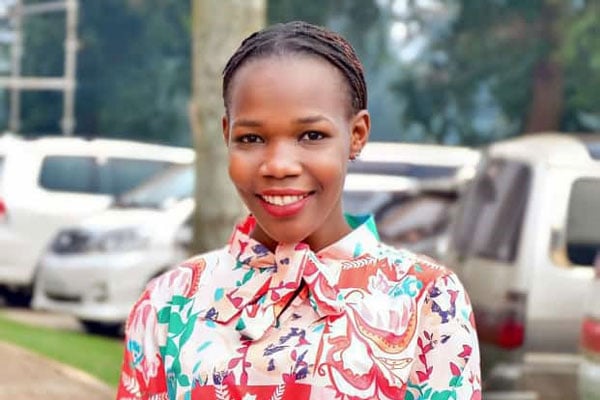Police brutality, poor pay top press freedom day talks

Cpl Ogwal Yeeko pepper-sprays journalists as they covered the arrest of pre-medical interns who attempted to march to Parliament over delayed commencement of medical internship on April 11, 2023. PHOTO | ABUBAKER LUBOWA
What you need to know:
- Sheikh Imran Ssali, the head of religious affairs at Uganda Muslim Supreme Council, said there is a need for punitive measures against perpetrators, including police officers who brutalise or block the media from doing its work.
As Uganda joined the rest of the world to mark press freedom day yesterday, several speakers highlighted poor pay and police brutality as some of the biggest challenges.
Sheikh Imran Ssali, the head of religious affairs at Uganda Muslim Supreme Council, said there is a need for punitive measures against perpetrators, including police officers who brutalise or block the media from doing its work.
“I appeal to the government to help see that journalists have the freedom they need to do their work, because we have seen acts against journalists that deter them from being efficient in their work. We have seen harassment against journalists from different security agencies, which is something we condemn because it hinders press freedom,” Ssali said.
He added: “We ask the government that instead of waiting for a time to apologise to the media after a bad act on journalists from police, let it devise other means, because we have seen them apologise over and over again about police brutality on journalists but there is nothing that has changed.”
According to Mr Ssali the government needs to work well with journalists, “by training security personnel on how to handle journalists during coverage of protests which will enable the two institutions work together coherently, because we have seen harassment against journalists from different security agencies, which is something we condemn because it hinders press freedom.”
Journalists also decried poor pay and others said they have gone for months without pay.
Mr Badru Baxter Nsubuga, a journalist from See TV said he had not been paid for the last 10 months.
“On this World Press Freedom Day, I am dismayed, hurt and broken. I used to work while persevering with promises from my boss that we shall get paid, but now the station is being sold off without us receiving our dues since February last year,” he said.
Some journalists said even when they are paid, the money is too little to sustain their livelihoods.
Mr Crispin Kaheru, a commissioner of Uganda Human Rights Commission, applauded journalists for the great risks they take every day to inform the public
“We’ve seen many journalists lately putting themselves at risk, shining a light on sensitive but important service delivery, accountability and human rights issues in communities. We urge duty bearers to view journalists as partners in the fight against crime and barriers to development.
Reports rank police as the top violator of press freedom in Uganda.
Top Violator
The Uganda Police Force has been ranked the top violator of press freedom for more than 10 years.
On April 12, Corporal Ogwal Yeeko pepper-sprayed Mr Isano Francis, and Mr Thomas Kitimbo, as police dispersed medical intern doctors, who were holding a demonstration in Kampala.
On June 29, 2016, Police Constable Pamela Agudo beat up two journalists, Mr Abubaker Lubowa and Mr Mutebi Robert while covering the arrest of the then Chief Mobiliser of the Forum for Democratic Change, Ms Ingrid Turinawe for disobeying police orders.





